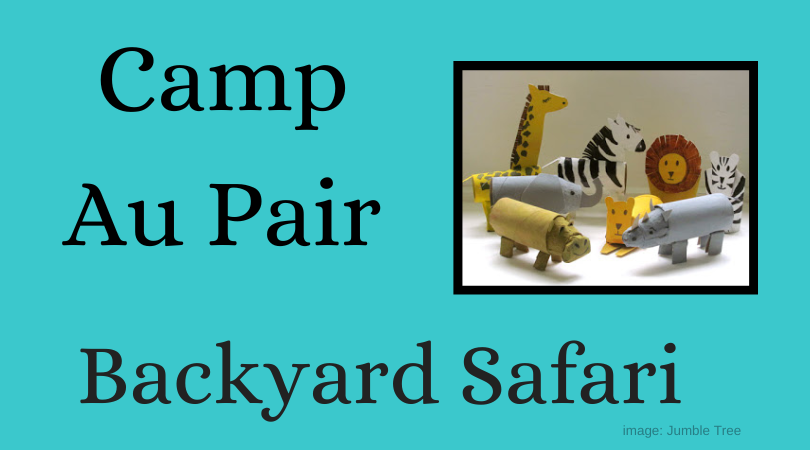
Next week’s Camp Au Pair theme is Backyard Safari These activities focus on animals you might find in the a variety of environments: jungles, savannahs, safari parks and zoos.
Crafts, recipes, activities, and games can all be found here on the Camp Au Pair – Backyard Safari pinboard.
Field Trips can be an excellent way for kids to learn and have new experiences. Get permission from your host parents before any outings. Check the websites before you go to be sure you understand the hours, costs, and whether advance tickets/reservations are required. Search online to see if your area has any of the following:
- Local Zoo
- Animal Rescue Park
- Drive Thru Safari
Webcams – You can do a Google search for websites with webcams that allow you to observe nature.
- Explore.org has lots of nature webcams including African Safari
- San Diego Zoo Webcams
- Houston Zoo Webcams
Books – Stop by your local library and look for books on animals you might find on a safari or in the zoo. You can also check YouTube for some books on this subject being read aloud.
Movies – There are lots of movies with animal themes.
- Back to the Outback
- Madagascar 1, 2 & 3
- The Jungle Book
- The Lion King
- The Wild
- Zootopia
Videos – Look for fun videos about animals on YouTube. Here are some to get you started.
- Amazing World of Young Animals
- Safari Parks for Kids – An Amazing and Quick Guide
- The African Savannah Virtual Field Trip
- The Magic School Bus Explores Animals
- Virtual Tour of the Australia Zoo
Image: Jumble Tree

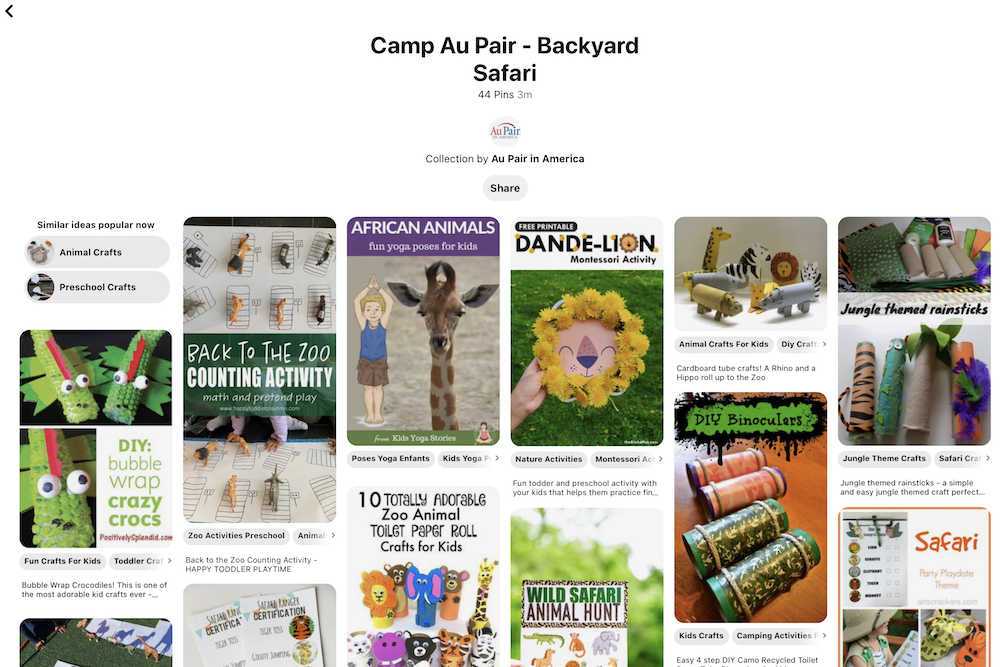


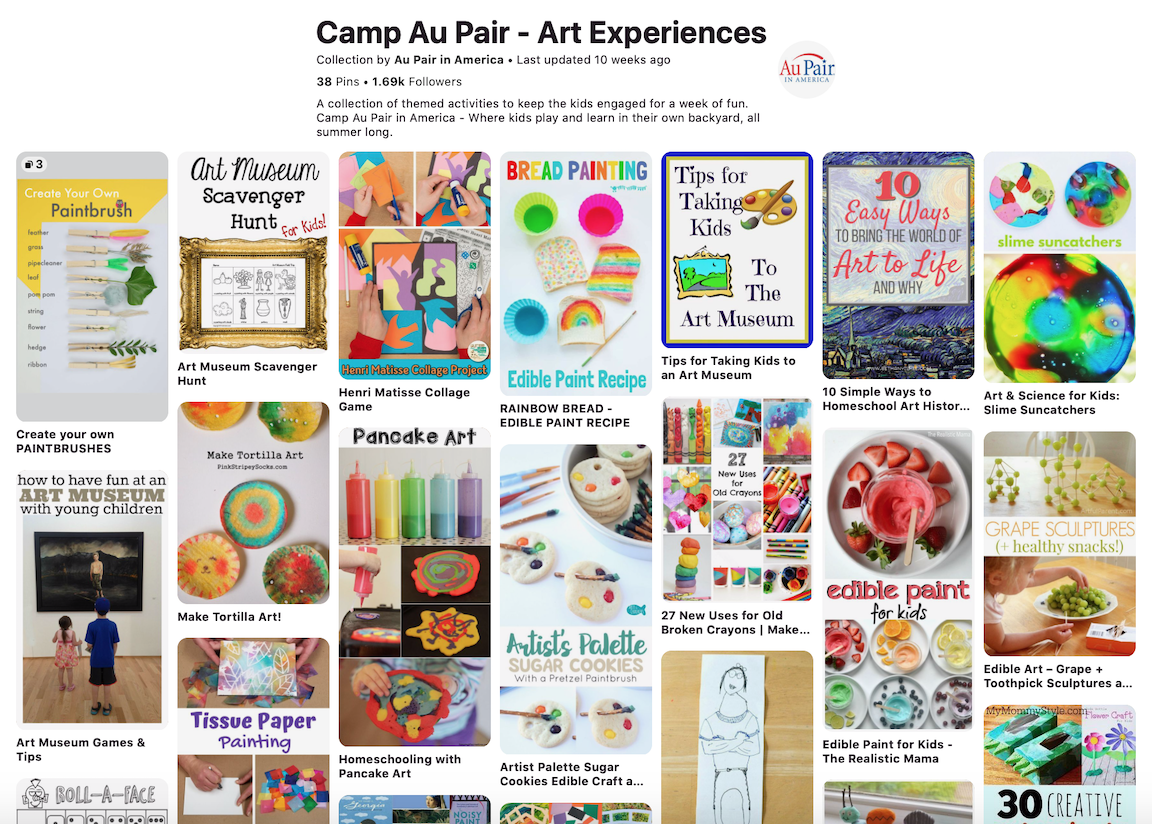
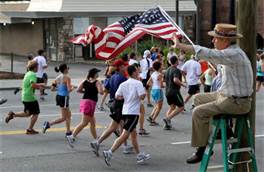








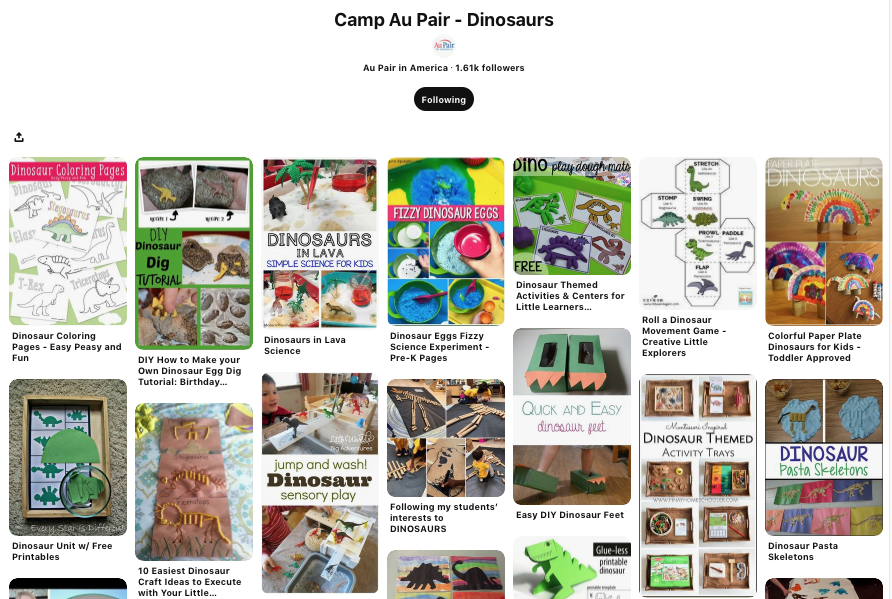
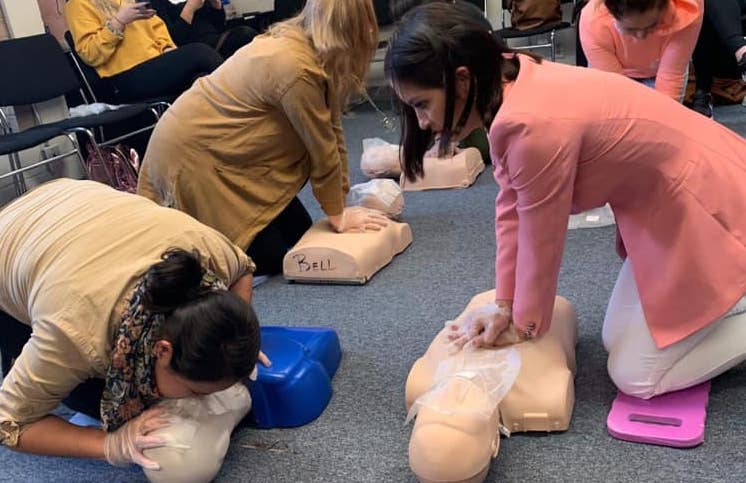
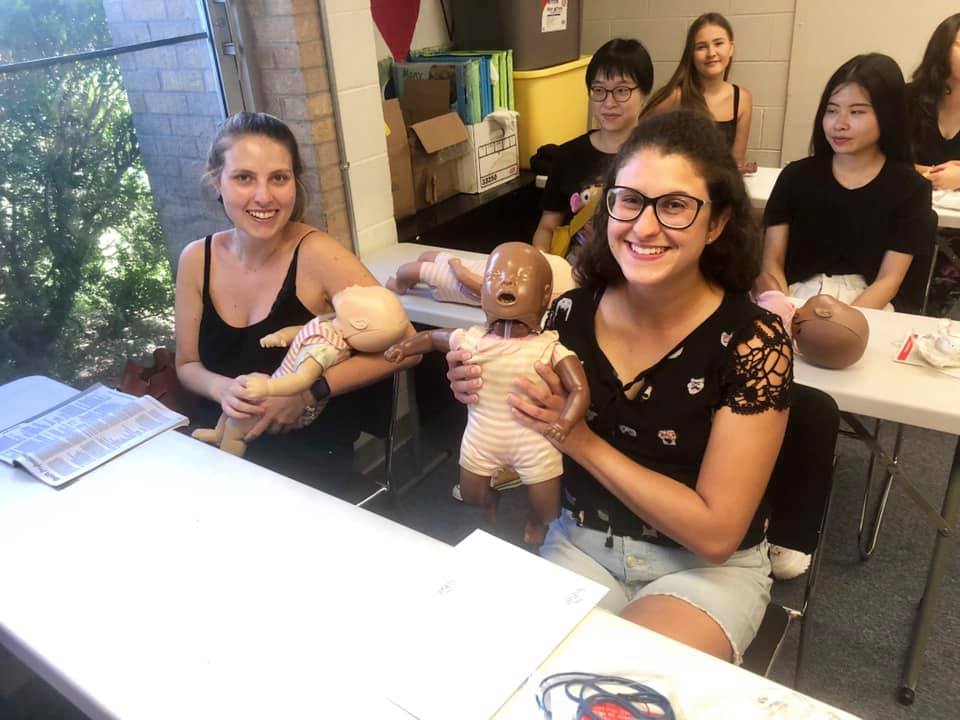 Classes are available through the Red Cross. Au Pair in America will pay for the cost of a class providing an au pair has at least six months left on her visa and is taking one of several approved childcare/child safety-related classes, such as Adult and Pediatric First Aid/CPR/AED. Au pairs should check with their community counselor and host family before signing up. Au Pair in America will register the au pair directly.
Classes are available through the Red Cross. Au Pair in America will pay for the cost of a class providing an au pair has at least six months left on her visa and is taking one of several approved childcare/child safety-related classes, such as Adult and Pediatric First Aid/CPR/AED. Au pairs should check with their community counselor and host family before signing up. Au Pair in America will register the au pair directly.